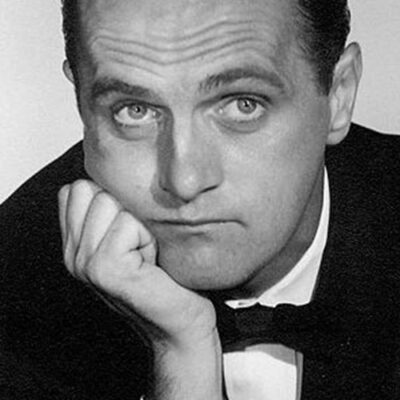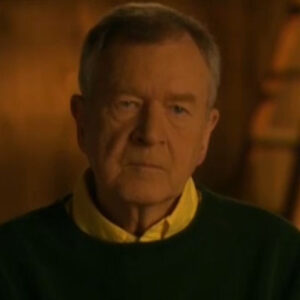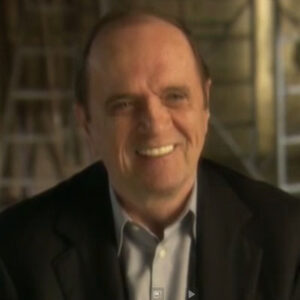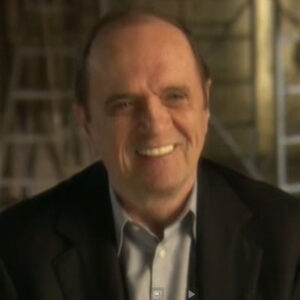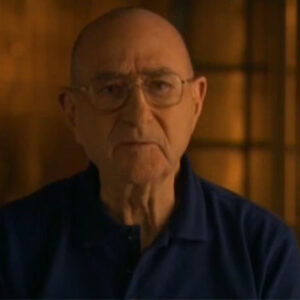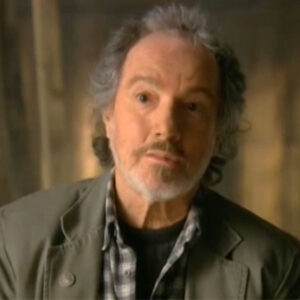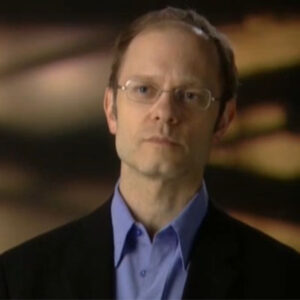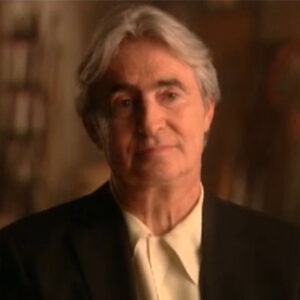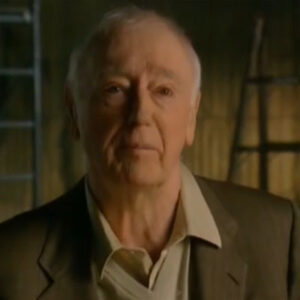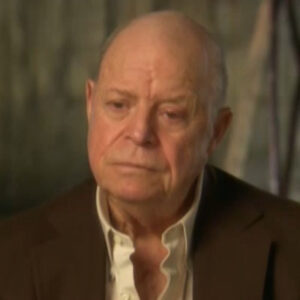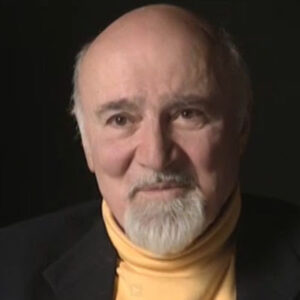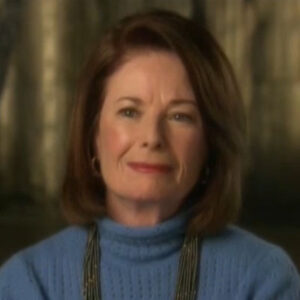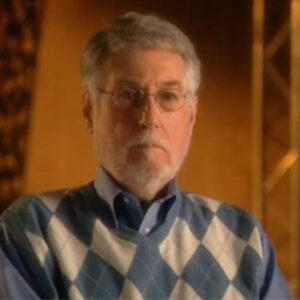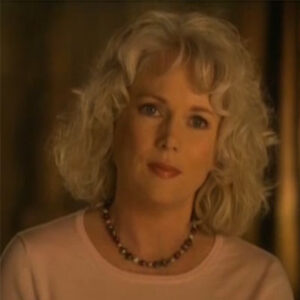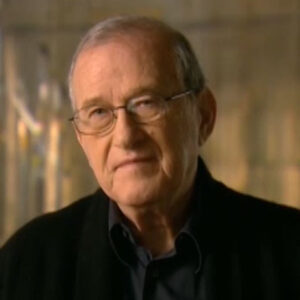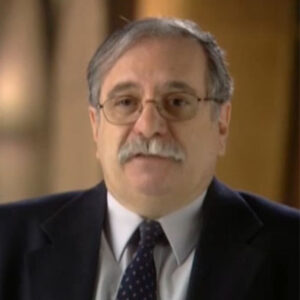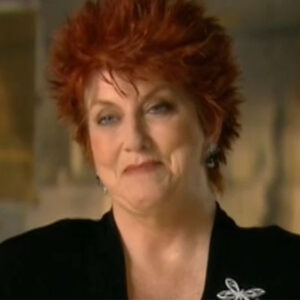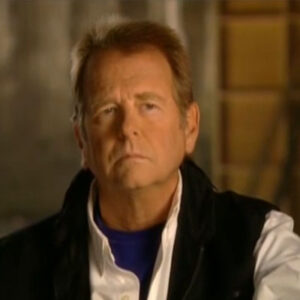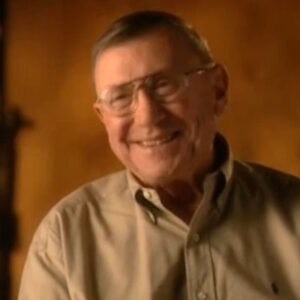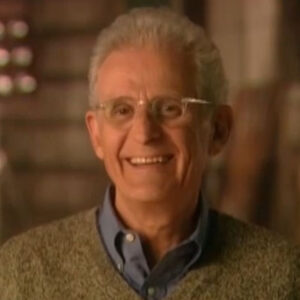Interviewer: Bob, if you were a fan of his early albums are.
Henry Buck: You know, it’s so long ago, I don’t know whether I was a fan of his early albums, but I think I was because all of us were taken by the Chicago group, by all of the people coming east from Chicago, Nichols and May. Shelley Berman and of course, Bob and. Bob was the first one of that entire group I got to work with because I was working as a writer on The Garry Moore Show. And Bob was a frequent guest. I think it was the first big comedy variety television show that he guested on a number of times. Everybody loved him immediately. Everybody knew he was terrific and original and and really liked working with him. And it was fun to write. We all, you know, one wrote what we called crossovers, little bits and pieces that went on and be put in big numbers of the big company, numbers of the dance numbers or whatever. And it was all most fun was writing for the guests. I mean, we all kind of write for Garry Moore and Derwood Kirby. It wasn’t like Nobel Prize stuff, but so we were thrilled when the when the guests came and gave us new voices. Of course, Bob had his own material, and I think he did several of his famous numbers on the show. I’m not sure. But it was immediately apparent that he was terrific in sketches and bits. So I think maybe the show was helpful to him because it. It stretched the possibilities of what he could do in the eyes of a very large audience.
Interviewer: So you didn’t see him sort of struggle testing out this acting thing in sketches, you know, coming from a more about just stand up background.
Henry Buck: I wish I could say that I remembered exactly what the numbers were that he did, but I don’t. I do remember, of course, his phone calls. Nobody who ever saw him do them is forgotten. I’ve saw some do it, do them in clubs, and he did them on the air for us. And then sometimes he’d do them conversationally, as as you know, just as ad lib humor. And they were always funny. He’s one of those guys that is funny. I would say in spite of himself, except it sounds like faint praise, but it isn’t. I think probably if you walked into a room and heard Bob on the phone, you would start laughing even if he was talking to his agent, because there’s something in the tone and the rhythm of it that makes you think something weird and funny is going on.
Interviewer: Well, how did he fit into that? There was a whole kind of wave of new voices in comedy at that time. And how do you see him fitting in that, like Lenny Bruce and some of those others?
Henry Buck: Well, what is it that made him stand out? I suppose the thing that made him stand out was. One, his intense recognizability. Everybody’s had a salesman come to the door. That’s sort of like a Bob Newhart character. Everybody’s been to a dentist or a shrink who has a piece of Bob Newhart. That middle America, a perfectly toned middle America. Nice guy, but dangerously close to screwing up magnificently for no particular reason, except life is unfair. And and he encapsulates that that person, that slightly paranoid but really friendly person. And I don’t think, you know, some some. Comics, particularly of that era, didn’t care if you liked them or not or played off the fact that they had a dislikable edge to them. Rickles Frightening. Shelley Berman. Don’t get too close. Nicholson made. They’re too smart. I love them, but I don’t want them in a room with me. They’re too damn intelligent. But not Bob. Bob, you’d take anywhere. Half human, half dog.
Interviewer: You had what was your. You had occasion to work with them also on a series that you wrote early on. You could tell me what that was and what he did.
Henry Buck: I wrote a short lived series called Captain Nice. I think we did like fifteen shows, which is good enough. One of the shows took place in and around a Playboy like mansion with a Heffter like figure. And Bob played the Hefner like guy. And he was hilarious.
Interviewer: Why did you want him for that tell? He would be perfect for it for some reason.
Henry Buck: This I’m not sure why, but this there is something about the image of Bob in a dinner jacket or pajamas with a pipe in his hand, doing a kind of semi amused, smug and completely meaningless drivel dialogue, not Hefner’s drivelling dialogue after speaks like a human being. But my durably dialogue that I wrote and I knew it would be funny coming out of Bob. And it was.
Interviewer: As a writer yourself. What did you think of his writing and his early material?
Henry Buck: While Bob’s original routines that made him famous were perfect and there was never an extra beat, there was never an extra word, they were really contained. They were great little one act plays. And the idea of of a one person dialogue is not a totally new idea that goes back to vaudeville of a guy on the phone, guy talking to someone that you can’t see or hear, but. Bob brought it in to the modern age. Bob brought it into the 60s in a really interesting way. And I mean, now, as you know, we can do or say anything. There are no constraints, certainly in a nightclub stage. Very few or none on television and cable, not in films. You can say anything you want. Then it was still the early 60s and. People had to pay attention to the rules and. Bob didn’t need to be reminded of the rules because he was breaking a different kind of rule. He was breaking a kind of I mean, it is. I was thinking today, one of his routines, a dialogue with the pope, which is particularly relevant as we speak in this week of the popes of John Paul to his death and. A few years before that, I don’t think he might have been able to do that. A few years before that, he might not have been able to do his dialogue with Abraham Lincoln. I don’t know. But he could do stuff that other comics couldn’t do because of the. He probably hates it, but I have to say that the likability factor is so high and it’s so I don’t think he can escape from it.
Interviewer: So do you think that’s it, that he was more specific than he appeared in a way?
Henry Buck: You know, I I think that people who know that the audience is with them can be more subversive than more subversive work, continually subversive than than than others, because people don’t. People never went to see Bob because of his subversive attitudes. It wasn’t like going to see Lenny Bruce where you knew someone was going to be shot. I don’t think Bob ever shocked anybody. Because his manner and his personality overrode. The possible shocking nature of the material.
Interviewer: That’s a great point. Tell me about. The next film, the next occasion, you had to work with them.
Henry Buck: I suppose it was first family.
Interviewer: It actually was.
Henry Buck: Oh catch 22. Yeah. Yeah, of course. In catch 22, we were locked into a strange remote place in the middle of the Mexican desert, very beautiful and a very remote where a very large contingent of actors were left to their own devices. Very, very difficult thing to leave actors to. They lapse into various forms of insanity from boredom, lack of companionship, need to cause trouble, et cetera, et cetera. Bob never caused any trouble, but he wanted to escape. He wanted to get out. And I think he made a run for it at one point. Many actors did. They just got so tired of eating different kinds of shrimp three times a day and playing trying to play tennis on a potholed court without a net. So he. I think he made a run for the board. I think he Dick Benjamin and Paul Apprentice got in the car and tried to escape, and Nichols had them hunted down by by one of our our copters and dragged back to the base or the set.
Interviewer: Were you involved in casting?
Henry Buck: I was involved in casting. I have no memory of whether any one of us said I’m sure Mike said, you know, Bob Newhart. This is kind of great for him. But I don’t I don’t really. I may be being unfair to someone else who thought of it or even myself, but I’d like to take credit for it because he is the perfect. He’s a bit that that character is perfect. I can’t imagine anyone else doing it anymore.
Interviewer: In what way? What did you think of this?
Henry Buck: Oh, it’s perfect. I mean, he is that guy. That guy that. Is totally lost in in his own authority, doesn’t know what to do with it, doesn’t know why he has it, is burdened by everything. Anyone who’s ever been in the genius of Joe Heller’s book, Catch 22, is that anyone who’s ever been in the military knows all those characters, every one of them. They are they are extrapolations from real, real life and Bob’s avocation of that guy is the hunted, that’s hunted guy, always hiding from somebody, even from himself is a gem. I think.
Interviewer: Yeah, I’m thinking that. I mean, that sense of humor. The film that you think his sense of humor matches that it’s sort of looking at the absurdities of bureaucracy and the military. But that seems to fit well in with with Bob’s sense of humor and his view of the world. Did you think he meshed well?
Henry Buck: I could have imagined him doing a monologue from behind his desk as the character. I could imagine him calling up a general or someone in the State Department or some high army person and, you know, having one of his typical new white. Monologue dialogues with him. Yes. I think it’s fit and maybe too well.
Interviewer: Do you remember that? Were you there when they shot the scene where he is a. Trying to escape from this little office, climbing out the window.
Henry Buck: Yeah.
Interviewer: Can you tell me about. Do you remember shooting that scene or anything about his delivery of that performance?
Henry Buck: I don’t know. I mean, what’s there is there. I can’t remember. No, I don’t. I don’t really remember. I remember watching it. It’s a lot of really good tour de force stuff in that sequence between him and Tony Perkins. The nice thing about the film for me is that. There’s a lot of really high class talent out there and nobody gets swept under the rug by it. And that’s partly because Mike Nichols knows what he’s doing, but nobody gets left behind. There isn’t anybody, I think, who doesn’t come off as being memorable.
Interviewer: What about. Do you think there was any. Was there a difference for him playing in a in a film where, you know, did he have to work on? Did he struggle at all with his delivery in terms of the film? He has to style. And so kind of minimalist, in other words. And film is often the opposite of that. Was there any. Sort of working on it on his part.
Henry Buck: If Bob works hard, you don’t know it. That’s my take on the way he works all the times I’ve ever been with him or seen him work. Even when I was directing him at one point. I have the feeling that I was just doing other takes just for the sake of doing other takes, because basically he has the core of what he is trying to do down pat. I mean, a lot of it, I think, is built in. I don’t know what his technique and what’s in board. So he can’t tell off times and actors and you don’t want to be able to tell. But boy, I never saw him make a false move. I know there were things I might have thought he’d do this, do that, elevate this, lower that. But I mean, I never felt. That his instincts were ever less than the number knows, I’m trying to think of an example of something.
Interviewer: Did did he seem to have to admit it altered his performance at all from being, you know, telling it it was a television performance different than a future film performance?
Henry Buck: No, I don’t think there is any difference with most actors, with most good actors. And you think of the good, really interesting performances on film that Bob has given, like in. What’s the one with Kevin Kline has an. In and out where? I mean, of course, these were we the audience are lucky because Bob comes in and makes a speech and once Bob is there to make a speech, he’s got gold. He may have rewritten it for all I know. I wouldn’t be surprised if he did. Because it’s so much like him. But maybe that’s not being fair to the writers who were writing for him after all. And. And suddenly, you know, you’re made happy regardless of what’s happening, you’re made happy because he’s there, even if he’s playing somebody completely deranged. I see. I think. That I’d love to have seen him do. Stranger and more eccentric roles in films. I’d love to have seen him on stage in Shakespeare because I think he would be a breath taking clown in a number of plays. I can think of. Because the trick with comic characters in Shakespeare is to make them at least appear to be recognizable because the dialogue is so sophisticated for our time. And. And elliptical or or even just complicated because of language differences, but a really good actor and they’re a bunch of them can make it come to life in a way that you don’t expect. And new heart’s reliance on the reality on real behavior is something that I think could transcribe kind of brilliantly to the stage. I don’t know whether he’s got the presence for theatrical, but I wish he would. And I’d like to see.
Interviewer: On catch 22, did he improvise at all or contribute in any way to the, you know, the writing?
Henry Buck: To my knowledge, he didn’t. He may have added one or two words or things or, you know, I don’t really I have no memory of that. But he sure helped the mood off stage. Off camera.
Interviewer: I used to try to get him to tell the same story over and over because it made me laughs. We had we had two stories, Bobbit a story, and I had a story. My story was a more personal one about a family member who had a brain problem. And I would do slight versions of what that brain problem was. And it made Bob laugh and he liked it. So I would trade that story for his story of a comic that he and his fellow comedians used to go and see in a hotel in Florida. And this was a comic who had no jokes. He had build ups and no punch lines. And he would wait for the audience laugh as though they were a punch line there. And when people would go, I can’t do this guy and I’m not going to try to. But to have Bob do it is worth paying money because he does this guy. This guy with no jokes who is up there wowing the audience with nothing. And it’s a great routine. I’ve never seen him do it anywhere. But for people.
Interviewer: I’m going to ask him to do that. How would talk about how the Catch 22 was received? And Bob’s, if you remember Bob’s performance at all being noted or what?
Henry Buck: Catch 22 had a very, very odd reception. Not a particularly salubrious one for most of us. It was admired in on a sort of very high level and completely. It’s ignored by the middle area. Did not get a big audience as usual, films like that, it had a big following in Europe and. And and here in America, aside from two or three of the big time reviewers like Vincent can be and so forth, it was fairly well ignored. But also it had been trashed by people who were comparing it to Altman’s film to fill me in, I forgot.
Interviewer: MASH.
Henry Buck: It it had been. It was compared all the time to MASH, which. Something we just didn’t see coming. Obviously, we didn’t know anything about Nashville, we’re making catch 22 and didn’t care. And after MASH came out, we all said, boy, is that funny. But it doesn’t have anything to do with this much darker stranger creature in the eyes of a lot of people. It did. And Castroneves who suffered because of that, certainly at the box office. Also, it is dark and it is difficult. And there are places in it. But I wish we could redo. But I don’t remember anything about. The only thing I mean, this is catch 22 talk. Not not Bob Newhart talk. The only thing I can really remember is I thought Arkin would certainly be nominated for an Academy Award because I think it’s a unique performance. But but he didn’t because the film. Didn’t make a lot of money and films have to make a lot of money to get awards.
Interviewer: Can you tell me what year that came out?
Henry Buck: No, no. I think it was 60. 70. 70 ish.
Interviewer: Yeah. I could ask you to say that my name came out. I thought it was 1970.
Henry Buck: OK, I’ll say.
Interviewer: Hold on. Sorry.
Henry Buck: OK?
Interviewer: Yes.
Henry Buck: Catch 22 came out in 1970, shortly after MASH came out. What a terrible mistake that was, but it was nobody’s fault.
Interviewer: Do you and what do you call where Bob was with his career at that point when he came on to that?
Henry Buck: I haven’t a clue.
Interviewer: Tell me about the next experience you had working with them in the next film that you wrote?
Henry Buck: I wrote and directed a film. Again, not a successful first family parody and satire of a political satire is probably cured me of making political satire. But maybe not. And. And again, it was sort of a monumental cast of wonderfully funny people. But. But, you know, something went wrong, it certainly wasn’t any of the actors fault.
Interviewer: Have you written the part with Bob in mind or how did you know?
Henry Buck: I wrote the part. With nobody in mind. And. The the actors in the film were off lists that the studio gave me. Just like a. Just like the cliche, there was an A-list B list and a C list, a list got your three points Velis got you to see list Lescott you one. I think I was told to make up 15 points or die trying. Fortunately for me, Bob was on. I think the A-list because he was in this big hit TV show and in those days nobody was sure whether television. Whether television, fame and success. Fed into a theatrical motion picture career or not, or was a detriment. Nobody really understood. So at any rate, Bob got me three points and I was perfectly happy because I already knew he was good actor and it made me rethink that part a little bit because I had in mind a kind of bigger, rougher person. But it was extremely simple to rethink. With him in mind.
Henry Buck: It wasn’t funny to imagine Bob Newhart as president of the United States. Seemed like a great.
Henry Buck: The truth is that it’s funny to think of almost anyone as president of the United States, including some of our presidents. So was it hard to think of Bob Newhart is president, the United States. And as things go, I would have preferred him as president of the United States to several recent ones. However, that being said. The fact that this president was teetering on the edge of insanity. Made it necessary to have an actor who either could so frighten you into a kind of submission or else force you into laughing at things you might not otherwise laugh. There’s a place. There was a place that I you know, it’s it’s odd to talk about this film since nobody liked it but me. And even I don’t like all of it. There was a place in the film where he makes a speech and the speech is, although nobody seemed to notice it. An almost direct parody of a speech Nixon gave at the end of his career. And I love the way Bob does it as he’s he’s cracking up. Then there’s another. Yeah. And I thought, well, everyone at least will appreciate the fact that I’m trifling with history here. But. I guess they didn’t shoot enough. There’s another place that isn’t in the film that was so much fun. Or there’s a drive in the presidential limousine in the backseat is the presidential family. Bob, Gilda Radner, his daughter. Madeline Kahn, his wife. And maybe Austin Pendleton is there, too, as the kind of translater boyfriend would be boyfriend and her in her mind. And they’re driving to the airport from the White House and for no reason at all. They and Bob starts humming. And before long, they’re all singing side by side. And I think it’s heartbreaking. And it’s a great, great piece of film, but it isn’t in the film.
Interviewer: How come?
Henry Buck: Two took a long time, the studio didn’t think it was even mildly amusing. And I don’t know if you can if you can have a scene where Golden and Bob and Madeline are singing in harmony side by side for no reason at all. I just I think I’ll go home and look at it.
Interviewer: Did he seem to enjoy the process of.
Henry Buck: For me, new heart is so calm. I have the feeling that if he’d lost a leg earlier in the day, you would probably not find out about it until he did a comedy routine on it later on. He I’ve never saw him in all the towns we work together, I know I never saw him at a real loss. Nervous, his nervous energy. Yeah, but he’s edgy, paranoid. Well, he is sort of paranoid, but never at if if bad things were happening, it didn’t overflow.
Interviewer: Did you sense at all? He’s talked about, you know, being coming from his comedy standup background to work on a film set where there’s no audience reaction was sometimes. Disconcerting for him. Did he ever talk about that or did you notice that at all?
Henry Buck: I had no. No, I had no I’m trying to think of there were other television stars in the movie and I guess their word or their. In Catch 22, certainly after he would do a tank of his scene. There would be. The crew would have to, you know, laugh. And so there was always that feeling of a lot of people holding their breath while someone’s doing something funny or unusual or remarkable. And since Bob also was a really known person to everybody there. Except perhaps to a few Mexicans. It there they are ready to be made. Vulnerable by whatever he did.
Interviewer: So he got feedback that way.
Henry Buck: I think so, yeah. And also, Nichols is a terrific audience. I’m not a great audience. I laugh sometimes, but life is a great audience. So he’d laugh after a tank. That always makes some actor happy when the director laughs.
Interviewer: Do you recall on First Family, Bob, as you say, that was in the middle of a pretty big TV career at that point. Do you remember at all? Was he looking to do more film work or was there any thing that had to be done or how about.
Henry Buck: I have no insight into Bob’s career at all.
Interviewer: Do you remember did you have to see?
Henry Buck: No. I don’t remember any particular wooing. I don’t remember any particular schedule changing because of. Because of his television commitments, whatever they were, it’s possible he was on hiatus. It’s possible he was in between shows. I really don’t know.
Interviewer: Can you tell me what year that film came out?
Henry Buck: Of course not. 70S. Something.
Interviewer: I think it was. Wasn’t it.
Henry Buck: Oh, wait. Eighty something, eighty. No, not that I wasn’t. I haven’t a clue. Oh, well, then your research is better than mine.
Interviewer: Can I ask you to say that. When the first family came out.
Henry Buck: I have to say that when the first family came out. OK, I’ll have to say late 80s. I can say, you know, First Family came out in the late 80s. I think.
Interviewer: And you would. Nineteen, 1980. My mistake.
Henry Buck: Oh, hey, I saw Jesus. I’m younger than I thought.
Interviewer: I was trying to shave a few years off.
Henry Buck: Thank you very something. What do you want this to go and pockets.
Interviewer: Comfortable for you.
Henry Buck: Does it matter? I don’t care.
Interviewer: It’s right here. Yeah. OK.
Henry Buck: I would say that first family came out around 1980, 81 at the most.
Interviewer: And you were talking about how it was received and how it did. And do you remember at all having a reaction to that if he was disappointed?
Henry Buck: I’m shocked. I don’t really know. I’m sure he was disappointed. Everybody connected it, including me, was disappointed. But. It still has some rather good moments.
Interviewer: I just watch that again. I do want to ask you more about this idea of do you think Bob works better in television or film for any reason, or is there, again, a difference between. That he works small at the scale of his work suits one better than the other.
Henry Buck: I think that. The scale of Bob’s work, the the what one might call the minimalism of it is is simply a. A way to get out certain characters. I don’t think the media matters at all. It might matter on stage because you have to have a certain voice and a certain although with miking today, that hardly matters. But there is a there is a shift in technique. However, God knows he’s been on enough stages so that he he probably understands that pretty well. But there isn’t really. I don’t think there’s any difference between television and films. It just depends on. On the on the on the kind of parts you can get that that fit your particular talents and your your temperament.
Interviewer: So you never saw any transition for him. Coming to film and changing the the the scale of his performance at all or trying to or whatever.
Henry Buck: It seems to me that within the framework of the kind of person he does the best, that all of the parts I’ve seen him play on film are related to all of the parts I’ve seen him play on television. I don’t mean that he’s playing the same guy every time because he clearly isn’t. But. He’s playing different men with the same kinds of hang ups.
Interviewer: Do you think that he’s had more of a. He certainly was. He has a huge, huge television career. And do you think there’s any kind of reason that he maybe works better on one than the other or you just don’t agree with that?
Henry Buck: You know, actors have huge television careers and everyone thinks, well, that’s all they can do until they make a film, that’s a huge success. And they say, oh, wait a minute, I didn’t realize George Clooney was that interesting. And then it works the other way, too. Some people just never can make the move for numerous reasons, but probably mostly because of material. So I’m loathe to blame an actor for anything. In other words, I don’t think. I think Bob could have had a continual career in movies if he wanted to. Certainly if. If he had for the better part of his career to come before television, he would have been in all those movies of the 30s and 40s. I mean I mean, those the characters that one remembers from the comedies of those decades are perfect for for Bob. He would have had a huge film career then. Character, you have the character, but those character parts were built for, you know, Warner Brothers and MGM and Paramount had. Companies of character actors. There was always a Bob Newhart among them. And but and that’s what television is now, of course. And Bob fits into it perfectly because he is he is core family. He is the person around whom you can build real people.
Interviewer: What do you think is his biggest contribution has been or how do you know this is how he is most impacted in the field of comedy? Has he sort of shown that you can be more, more quiet and, you know, deliver comedy in a different way? Or.
Henry Buck: It’s very difficult to know what what the effect of various comedians are on other comedians, particularly today when volume plays such a big part. You know, the noise level and it’s very funny, the noise level. I mean, whether it’s the Sam Kinison crazed end of life or or or Chris Rock’s. Kind of yelling at you, whether it’s funny or not. Mostly it is funny, but that but that that volume has become a part of the tradition of making jokes. And and Bob has never done. I don’t know what the audience would think if he yelled at them. I think they’d faint. He it’s a technique. It’s it’s what he does.
Interviewer: Yeah, it’s huge. I mean, that’s the key to his longevity.
Henry Buck: I think the key to his longevity is that everybody recognizes him. He has been at everybody’s Thanksgiving dinner table.
Interviewer: He’s someone we all know.
Henry Buck: Oh, he’s that off uncle. I mean, you know. He’s the odd uncle without Ms. Newhart, because once she’s in the picture, then it’s so real and normal that everything else falls away. And boy, did he get lucky there. But. But just to think of Bob alone, it’s that his uncle so-and-so coming from Indianapolis for Thanksgiving dinner. Yeah, well, I bet he’ll have some stories to tell. And that’s Bob, I think.
Interviewer: We did. We talked about a little bit. But I just wanted to ask you a little bit more about how Bob in the 60s, how he did differentiate from Lenny Bruce and Mort Sahl and some of those others. He was part of this comic wave, and yet he was different. He was unique.
Speaker I don’t think any of the other guys, the guys that came out of Chicago at that time. Most of them came out of Chicago, more so. Completely political. Even when he wasn’t political, it was political. Lenny Bruce, not Chicago, but Lenny Bruce breaking all sorts of taboos, talking about talking about things that nobody had talked about on, there’ll be dared talk about on stage, but at the same time building his persona off recognizable comedic routines. Shelley Berman, who probably was the closest to Bob of any of the others in that his monologues were kind of based on confrontations with strange people. But. nobodyNobody represented. I mean, everybody when Bob came into a room in the early days, everyone thought he was there to sell something. We assumed that is, you know, people would assume that the briefcase had samples on it. Or not. Comedy routines or contracts or whatever. Because that’s, of course, what he’d been doing and who he was. And all of that experience fed into the things that were libertines that he that he built, those those were the absurdities that middle America absurdly use a wealth of that in in in the arts in the in the 50s and 60s, as everyone became aware of. Wait a minute. Are we are we middle class or what. And what are our standards and what are our mores and what are our hang ups and what is this about. And so everyone started looking in on themselves. And a shrink like way. What Shelly did and the Nichols and May did and and and. And even Lenny did like Bob didn’t. Bob talked about the kind of people everybody ran into every day. Or fantasized about running into. We’re talking to on the phone. And, you know, ultimately, if you can make a phone call to God, I think Cosby did a little of this. I think they’re probably the closest to to come out of that area because Cosby based it all on a center of the road, middle class ideal of the screw ups and the righteous moments of real people and real families. And he also talked to very strange people, including God and. And Bob did the same thing. But from, needless to say, an ultra white position.
Interviewer: And in directing him, he has such a unique style of delivery, would you. Did you try to just not ever tamper with that or how do you direct.
Henry Buck: I might. I don’t. I try not to tamper with anything. I’m not a very good temper. But the. But I you know, I don’t have any specific memories of anything. I remember there was a there’s a there’s a huge scene in the White House dining room. We have to work twice as long as we thought we had to work because because of pit of laughter, because of breaking up in the middle of takes. And if the crew wasn’t breaking up, the actions were breaking up on each other. Between Gilda and Austin Pendleton and Bob, it was awfully hard to stand by and watch them without laughing.
Interviewer: The scene where he.
Henry Buck: Turns green.
Interviewer: That’s great. Thank you so much.
Henry Buck: OK.

